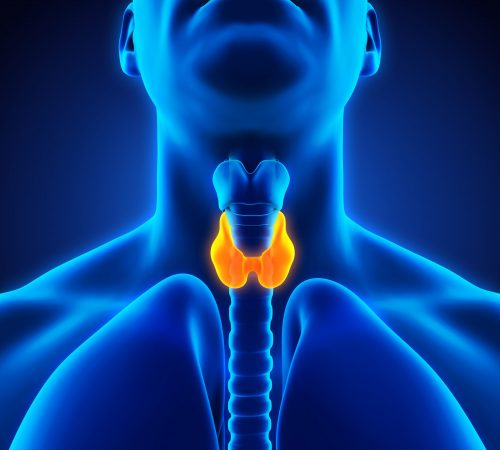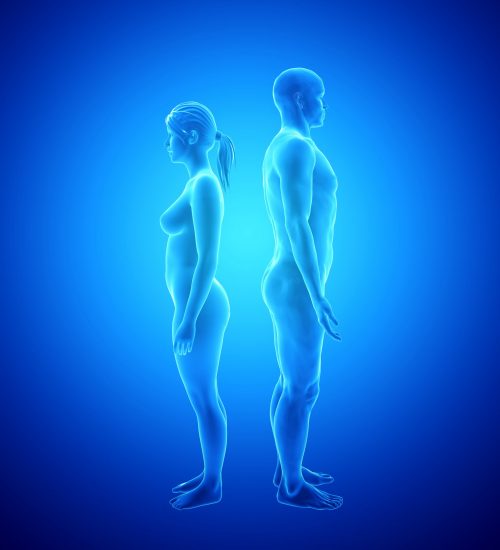Human Growth Hormone – Is It Right for Me?

Part 2
There’s no doubt that hormones play a pivotal role in maintaining a healthy physiological state. The regulation of these hormones is a complex and sophisticated mechanism. Negative feedback loops prevent overproduction, and other physiological and biochemical factors also affect how when and how much of a hormone is to be produced. Hormone Replacement Therapy (HRT) aims to restore hormonal levels to ‘normal’. However, it is impossible to mimic the natural levels that occur in a healthy body as they fluctuate. It is important for patients and doctors to understand this and, as with all medical treatments, there is a benefit risk analysis that must occur.
I often liken the human body to a car, it is an analogy that appeals to some men. The difference is that we built cars from scratch, we know every single piece of material that goes into the building of them, every fluid needed to maintain them and make them fire into action, every expendable piece can be replaced. The same cannot be said about our knowledge of the human body. We don’t need to update the Haynes manual every year as we discover new things relating to how the car works. The Haynes manual for the human body on the other hand, is still a work in progress. We do have an understanding of how it’s built and what mechanisms regulate it and keep it functioning, but by no means do we know everything, nor can we replicate them.
This civilised world is a rather peculiar place. With this improved understanding of our bodies and the environment around us, we are living longer but we are not necessarily living any better. Research and development has identified what is wrong yet we do nothing about it. It seems rather stupid, however life is all about freedom of choice and expression, so who am I to dictate what you should or shouldn’t do?
There is an increase in preventable disease almost every year. Man has made a lot of mistakes along the way, the list is a long one and one that has caused our health to suffer as a consequence. We know the environmental toxins we expose ourselves to on a daily basis, the artificial foods we place into our body because they are ‘tasty’, the modern civilised world is not so civilised when you take a step back and look at what it is doing to us. So with this knowledge of what is good for us and what is not, why are we not healthier?
We intentionally abuse our bodies through the poisons we put into them, we don’t use it in the way it was designed. Having just returned from a medical conference in London, I was amazed by the number of people on the Underground who chose to use the escalator instead of the stairs, even the snacks that were laid out at the conference were all pastries, which is rather ironic since one of the topics was diabetes! We are blissfully ignorant. One might get a bit philosophical and say we are on a journey, a journey of self-discovery, a journey where we are in the driving seat of our own destiny. That’s not meant to sound as cringeworthy as it probably does, but to be a passenger and not have the autonomy to make one’s own decisions is a far scarier perspective. You are free to make those choices, good or bad, it’s essentially up to you. You only get one life, you better make the most of it. These choices and experiences have made you the person you are today.
So, when you ask the question ‘Is HGH right for me?’, it should really be your choice. HGH has received much controversy over the past few years. However, Adult Growth Hormone Deficiency (AGHD) is a recognised medical condition, check out the NICE guidelines for its suggested management. We obviously need growth hormone to grow to become adults. Levels drop significantly after this as we have reached our genetic potential. However, cells are in a constant state of maintenance, repair and turnover. Our bodies need growth hormone to keep functioning, you need it to live!
You might not fulfil the AGHD treatment guidelines criteria, yet still have a borderline level and complain of the symptoms of Growth Hormone Deficiency:
- Increased weight
- Frailty
- Tiredness
- Decreased libido
- Poor sleep, trouble concentrating, and poor memory
- Lethargy
- Loss of zest for life
These all sound rather nebulous and vague, they could apply to all of us at some time and we naturally dismiss them as part of life or ageing. I suppose they are, but when they are affecting your quality of life then surely you are within your rights to do something proactive about it? As well as living longer, we should strive to live better.
So what are the potential downsides to HGH optimisation? As discussed, there are benefits and risks with everything we do. Despite the use of bioidentical hormones which are chemically identical to the natural hormone produced in the body, it is impossible to mimic the body’s own growth hormone levels. When functioning optimally, the body’s growth hormone levels fluctuate in response to other physical and biological factors that are occurring. It is understood that growth hormone is released in a pulsatile fashion during the day, supplementation will therefore cause some disruption of this mechanism dependent on the dose administered, frequency and timing. It no doubt interferes with the negative feedback loop and can cause downregulation of GH production within the brain.
Growth hormone breaks down in part to Insulin-like growth factor 1 (IGF-1), this is an anabolic hormone. As the name suggests, it is similar in structure to insulin so an excess of IGF-1 can lead to increased insulin resistance, increasing the risk of diabetes. Caution must therefore be used when administering exogenous HGH since the dose far exceeds the pulsatile amounts released at appropriate times in response to physiological need.
IGF-1 has also been associated with an increased risk of cancer, so people with a family history of genetic cancers should not use HGH. I’m sure the massive rise in incidence of cancer in humans, is in part due to this ‘unnatural’ world we live in. We voluntarily and involuntarily expose ourselves to toxins and chemicals and we engage in unhealthy pursuits that our bodies were not designed to endure. The resilience of the human body is incredible, yet at the same time we are reminded of how fragile it is when it goes wrong.
It is extremely important to lead a healthy lifestyle, not just because this will maximise your chances of optimising your GH levels naturally, but also because exposing yourself to artificial chemicals such as refined sugar, will no doubt increase the chances of abnormalities occurring if your body is in a high state of turnover or growth. Cancer is also characterised as being an opportunistic process, it is inflammatory in nature. It is classified as an obligate glucose feeder and is associated with a hyperinsulinemic state in the early stages. As an aside, the single biggest thing that most people can do to improve their health is to stop eating refined sugar.
Hormone Replacement Therapy has become an invaluable tool in optimising health. The use of bioidentical hormones means that the treatment is as natural as possible. It is however naïve to believe it is natural and, as discussed earlier, every decision we make, every option we chose, every path we take has its pros and its cons. You need to decide what is best for your health. Informed choice and autonomy are essential in your decision making arsenal. Human Growth Hormone may well be the ‘Fountain of Youth’ but it’s use is not without risks and should therefore be monitored by a healthcare professional.
Dr Robert Stevens MBChB MRCGP Dip.FIPT


